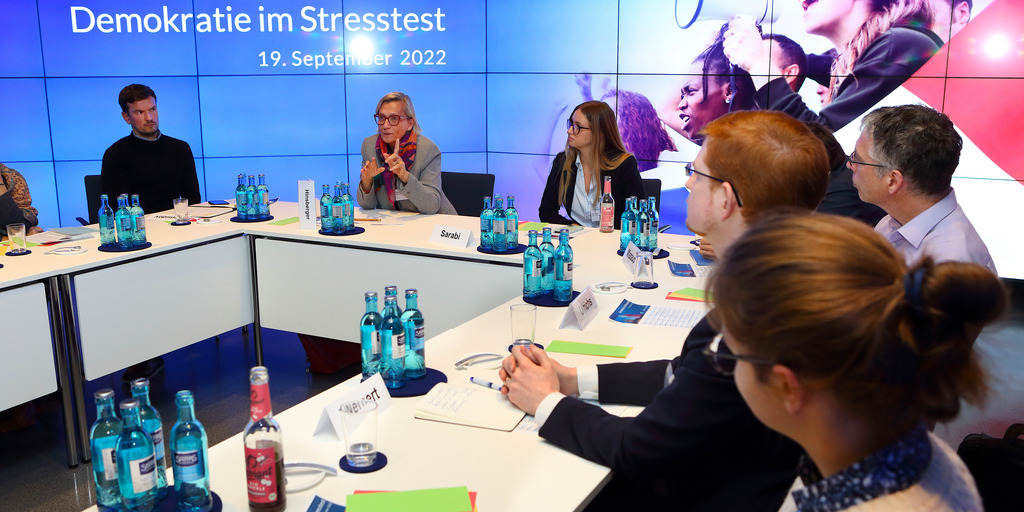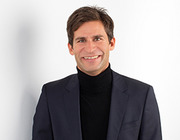These questions were the topic of the first round table discussion in the series ‘Demokratie im Stresstest’, held on September 19 at the Bertelsmann Stiftung Berlin Office. The series is a collaboration between ‘Democracy and participation’ project and the Berlin-based think tank Zentrum Liberale Moderne. The series examines how democracies in France, the USA, Israel, Poland, Hungary and the EU cope with various challenges of the present time.
Moderated by Ralph Fücks, the round table featured Dr Claire Demesmay, expert for Franco-German relations at the Franco-German Youth Office, and Michaela Wiegel, political correspondent for France at the Frankfurter Allgemeine Zeitung as the main speakers and continued with an open discussion (Chatham House rules) with a diverse audience of experts from science, politics, business and civil society.


![[Translate to English:] Diskussionsrunde Demokratie im Stresstest](/fileadmin/files/_processed_/e/a/csm_2022_09_19_IMG_6904_Demokratie_im_Stresstest_ST-DZ_Original_99452_7ed7dae8f3.jpg)


